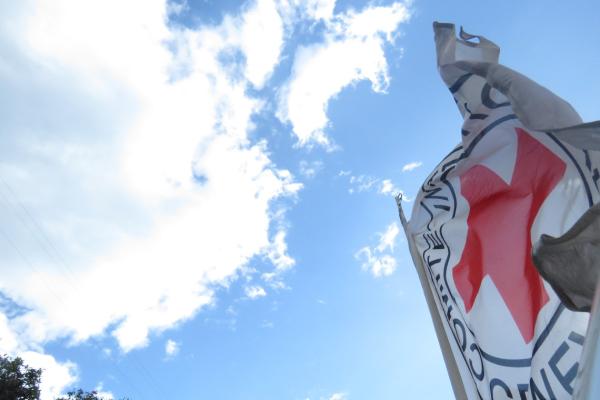
During his time in the country, he engaged with Afghan authorities in Kabul, met with patients and beneficiaries of humanitarian services in Kabul, and took stock of the ICRC’s response to the ongoing humanitarian crisis. He also met with the leadership, staff and volunteers of the Afghan Red Crescent Society (ARCS) and was accompanied for two days by the executive Vice-President of the Red Cross Society of China, Wang Ke. Together, they discussed the need for coordinated efforts to respond to the vast humanitarian needs across the country.
During his visit, Krähenbühl emphasized the importance of preserving a space for neutral, impartial, independent humanitarian action in order to address the needs of communities. He also reiterated the ICRC’s commitment to continue its humanitarian work in Afghanistan, alongside partners from the international Red Cross and Red Crescent Movement including the ARCS.
“The humanitarian situation in Afghanistan remains extremely dire. Millions of people are in need of humanitarian support. This is the result of four decades of war that have affected virtually every Afghan family,” said Krähenbühl. “I met patients at the ICRC’s physical rehabilitation center in Kabul and seen how important and life changing the work can be, such as providing mine victims with prosthesis and helping them walk again.”
The ICRC has been working in Afghanistan for over 40 years, providing humanitarian support to communities affected by armed conflict and grappling with overlapping challenges such as lack of access to essential services, climate risks, and economic hardship.
“It is crucial that humanitarian organizations assist communities in need in a neutral, independent and impartial way. The ICRC’s priority is to continue our humanitarian work to support the most vulnerable, including people with disabilities, detainees and victims of armed conflict. Yet we and other humanitarian actors need the space to support people in need in a way that is inclusive and fosters accessibility of humanitarian services to everyone: men, women and children, including in the health sector,” said Krähenbühl.
The ICRC continues to engage with Afghan authorities to ensure that humanitarian principles are upheld. This dialogue is critical to facilitate the safe and effective delivery of aid to communities across the country.
To find more on the ICRC’s work in Afghanistan in 2024, read our operational facts and figures.
About the ICRC
The International Committee of the Red Cross (ICRC) is a neutral, impartial and independent organization with an exclusively humanitarian mandate that stems from the Geneva Conventions of 1949. It helps people around the world affected by armed conflict and other violence, doing everything it can to protect their lives and dignity and to relieve their suffering, often alongside its Red Cross and Red Crescent partners.
For more information, please contact:
Achille Després, ICRC Kabul, +93 799529641, adespres@icrc.org
Parwiz Ahmad Faizi, ICRC Kabul,+93 729 110 672, pfaizi@icrc.org
We acknowledge Source link for the information.



